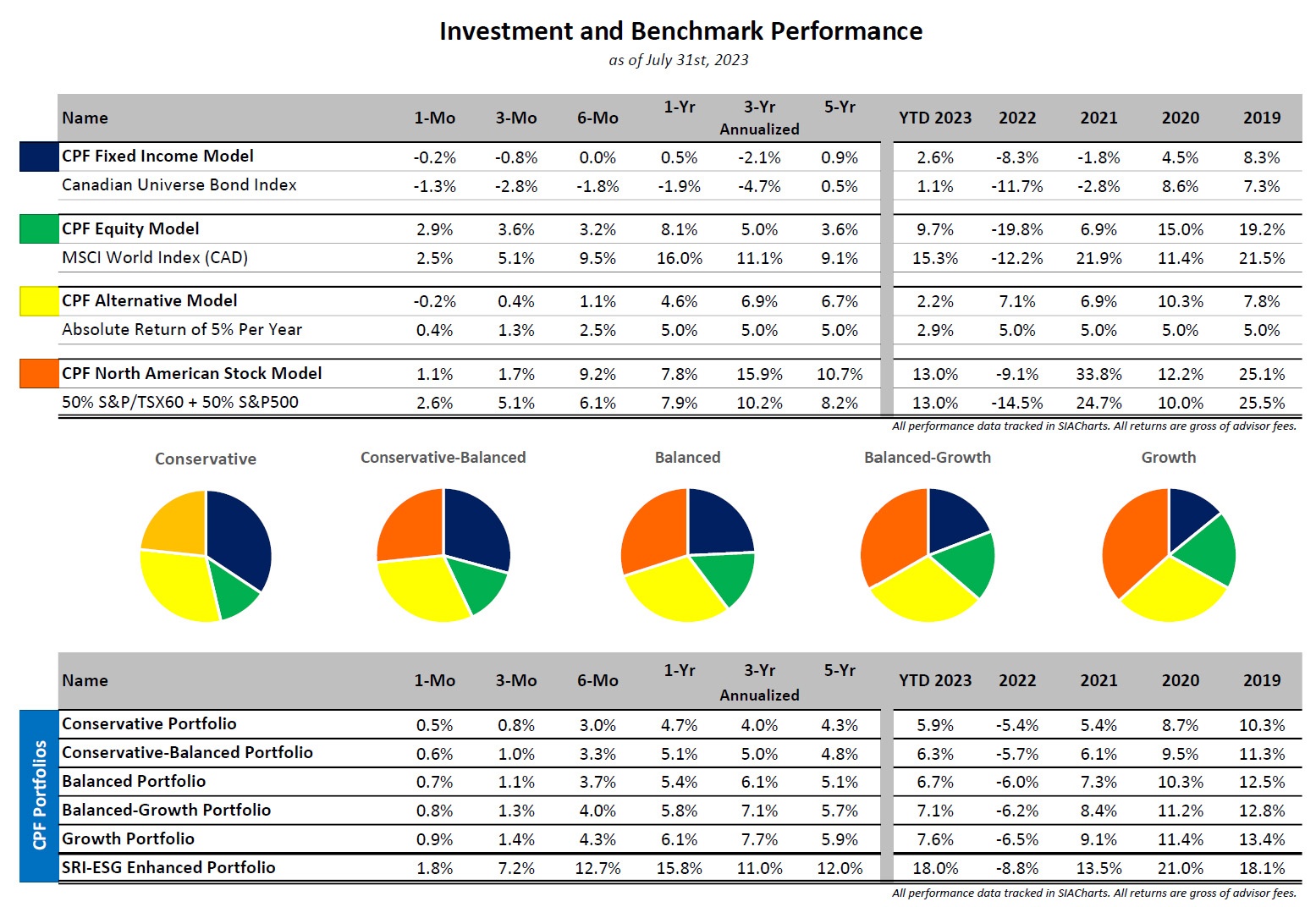July 2023 Commentary & Performance Review
The International Monetary Fund (IMF) has raised its outlook for the world economy, projecting a 3% expansion in 2023, indicating eased risks after the US avoided a default and authorities managed banking crises in the US and Switzerland. Although this growth rate is slower than the 3.5% achieved last year, it is higher than the IMF’s previous 2.8% projection in April. The IMF warned that global growth remains weak compared to pre-Covid levels and that risks are still tilted to the downside. Higher interest rates to control inflation, geopolitical tensions, and uncertainties in emerging economies are potential challenges to the economic recovery.
Global markets reacted with fear to the possibility of a change in Japan’s ultra-loose monetary policy. Should interest rates rise within Japan, it could entice investors to sell offshore assets in pursuit of higher returns back home. This is a concern given Japanese investors hold significant amounts of foreign debt, especially US Treasuries, as well as Australian, Dutch, New Zealand, and Brazilian bonds. The move is seen as a step towards policy normalization, which could leave the door open for further increases in the future.
After facing significant delays and cost overruns, the Montreal rail system, Réseau Express Métropolitain (REM), planned and funded largely by Canada’s second-largest pension manager, Caisse de Depot et Placement du Quebec (CDPQ), has finally been launched. The firm plans to explore similar projects worldwide and is already involved in bidding for a high-frequency train from Toronto to Quebec City. Although the governments of Canada and Quebec also invested in this rail system, partnerships involving private investors may play a vital role in future public transit projects.
Offshore wind projects are facing an economic crisis, with billions of dollars in planned spending being erased. Spain’s Iberdrola had to cancel a contract to sell power from a wind farm off Massachusetts, Denmark’s Orsted lost a bid for offshore wind power in Rhode Island due to rising costs, and Swedish utility Vattenfall abandoned its wind farm plans off the coast of Britain citing inflation. Soaring costs are derailing these projects despite the increasing demand for renewable energy driven by climate change and the need to transition away from fossil fuels. While some offshore wind projects are still progressing, many others are at risk due to cost increases, and governments will need to pay more to make these projects viable.
Canadian companies are facing the risk of higher interest costs due to a government proposal to eliminate the C$260 billion mortgage bond program. The Canada Mortgage Bond (CMB) program is guaranteed by the federal government’s housing agency, offering the highest credit ratings despite trading at higher yields than government bonds. Finance Minister Chrystia Freeland’s proposal to phase out CMBs could result in higher federal government bond yields, leading to increased interest rates for companies, provincial governments, and other bond issuers, according to the Canadian Bond Investors’ Association.
Portfolio Contributors
- Shares of TransAlta Renewables (RNW) surged 18.6% after the announcement that
TransAlta Corporation is looking to acquire all outstanding shares - Energy market trended up, adding 9.24% to the iShares TSX Energy Index ETF (XEG)
Portfolio Detractors
- Tightening Japanese monetary policy led to weaker returns of -0.17% for the Majestic
Select Partners Global Income fund (MAJ383) - The Waratah Alternative ESG fund (WCALIF) struggled with long/short positioning,
down 0.34%
All returns are for the reported month and in local‐currency.
All data sourced from SIACharts and FACTSET.


